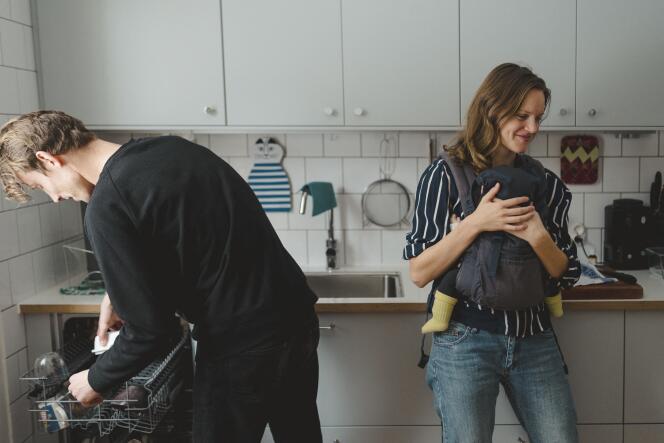It gets better! After years of stagnation, equality between women and men has progressed – a little – in the European Union (EU) in recent months, according to the index calculated by the European Institute for Gender Equality (EIGE) .
“It reached 70.2 points out of 100 in 2023, surpassing the 70 mark for the first time, and recording its highest annual increase, of 1.6 points”details the institution in its annual report, published Tuesday October 24. “Europe is moving in the right direction”, greets its president, Carlien Scheele. Before qualifying: “But it is not enough, and progress is fragile. »
It has been ten years since the EIGE, linked to the European Commission, compiled a series of indicators on wages, working hours, health and various inequalities between women and men in order to compare the evolution of member countries . Over the years, its index has made it possible to measure the effects of recessions, the Covid-19 pandemic, during which women were on the front line, or public policies implemented to advance parity.
Growing recourse to external aid
The 2023 report offers a contrasting panorama. Unsurprisingly, the Northern countries (Sweden, Netherlands, Denmark) are at the top of the ranking, while France is in sixth place, with a score of 76 out of 100. If they show results below average European Union, Portugal, Italy, Malta and Greece have made clear progress in recent years, while Hungary, Romania and Poland are stagnating.
In detail, progress is notable in terms of time allocated to care (of children or parents) and domestic tasks, where the index jumped by 9.6 points compared to 2022. This, less because men do more… only because women are a little less involved in unpaid household work in general, in particular due to the increasing use of external assistance, such as home delivery services.
“It is therefore not a question of a structural change”regrets the report, quoting in passing the 2023 Nobel Prize in Economics, Claudia Goldin: “We will never have gender equality until we also have equity in couples. » According to the study, 63% of European women say they prepare meals every day at home, compared to only 36% of Europeans.
There is also improvement in terms of representation in bodies of power (+1.9 points): the presence of women at the head of the governing bodies of companies or parliaments is increasing, thanks to the various national laws on parity. Take the example of the Copé-Zimmermann law in France which, since 2011, has required large companies to appoint at least 40% women to their boards of directors.
You have 24.7% of this article left to read. The rest is reserved for subscribers.
